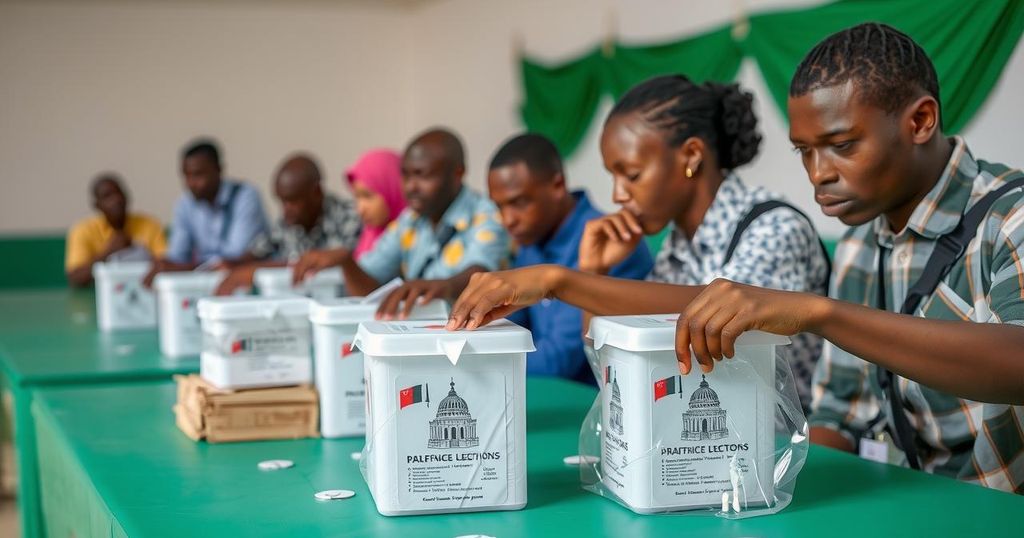Comoros Votes Under Shadow of Allegations and Political Tension

Voters in Comoros are casting ballots for the 33-seat parliament amidst claims of electoral irregularities following President Assoumani’s controversial re-election. Approximately 338,000 voters are registered as nearly 100 candidates contest for seats, with divided opinions among opposition parties regarding electoral participation. Assoumani’s critical leadership, coupled with fears of dynastic succession, plays into the election’s significance.
Voters in the Comoros archipelago are participating in parliamentary elections to fill 33 seats, with approximately 338,000 citizens registered to vote. This election follows the controversial re-election of President Azali Assoumani, which the opposition claims involved significant irregularities. Although ruling party officials have refuted these allegations, tensions persist as opponents accuse Assoumani of authoritarianism and suspect plans for his son, Nour El-Fath, to succeed him after his current term concludes in 2029.
Polling stations opened early on Sunday, marking a critical moment for the nation’s political landscape. The last parliamentary election took place in January 2020, and nearly one hundred candidates have been cleared to run by the Supreme Court. Some opposition factions, notably the Juwa party led by former President Ahmed Abdallah Sambi, who is currently imprisoned, urged a boycott of the elections. However, other parties continue to participate in what they view as a strategic move to highlight the shortcomings of the current regime.
Hamidou Karihila, an opposition candidate from the Hope of the Comoros party, explained, “The Azali regime is weakened … by participating in these elections we are contributing to further exposing the flaws in its system and accelerating its inevitable fall.” Results from today’s polling are anticipated by Friday, as the nation grapples with profound political challenges amidst calls for reform and accountability.
The Comoros is an archipelago located in the Indian Ocean, known for its political instability and history of coups since gaining independence from France in 1975. President Azali Assoumani has been a dominant figure in Comorian politics since seizing power through a coup in 1999 and has since secured victory in three elections. His rule has been criticized for increasing authoritarianism, particularly as allegations of state repression and political manipulation surface. The recent announcement of expanded powers granted to Assoumani’s son has intensified fears regarding dynastic succession in leadership, prompting significant opposition activity in the lead-up to these parliamentary elections.
In summary, the Comoros’ parliamentary elections represent a pivotal event amid ongoing concerns regarding political integrity and authoritarian governance under President Assoumani. With a portion of the opposition advocating for a boycott and others choosing to engage, the election outcome could significantly impact the future of governance and political pluralism in the archipelago. As results are expected shortly, scrutiny of the electoral process and its implications for the Comorian populace continues to be paramount.
Original Source: www.lismorecitynews.com.au






